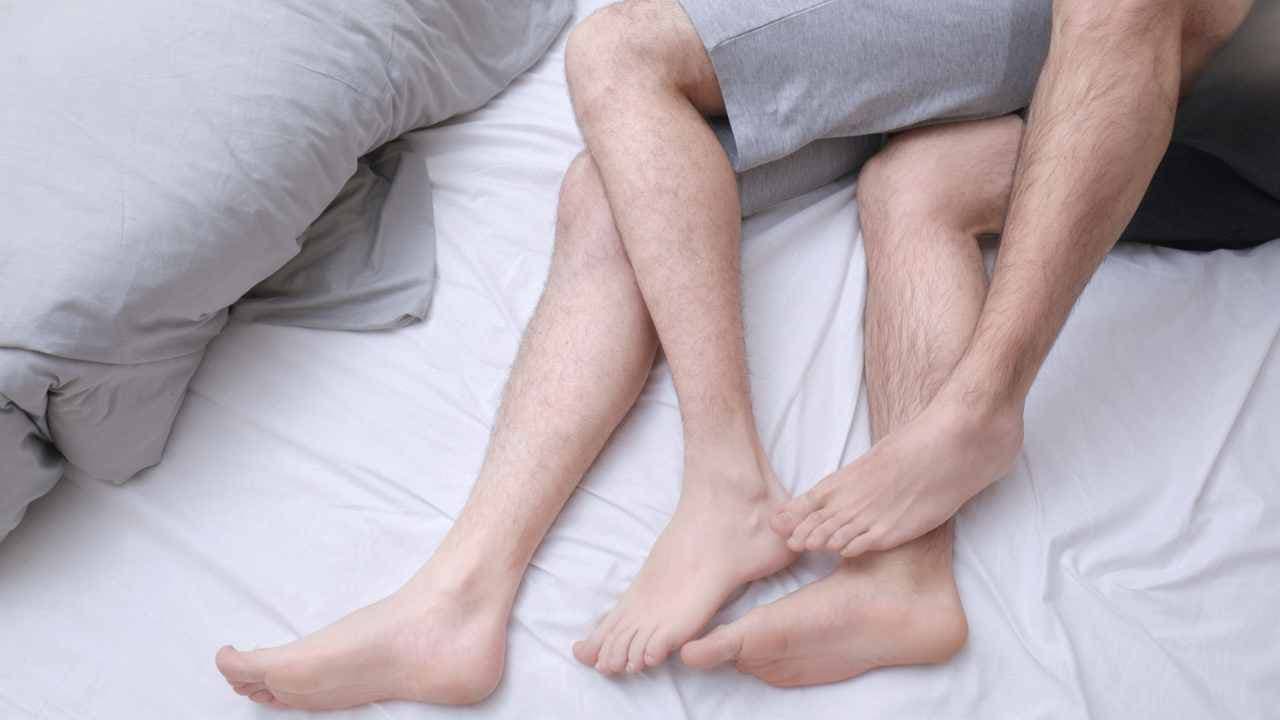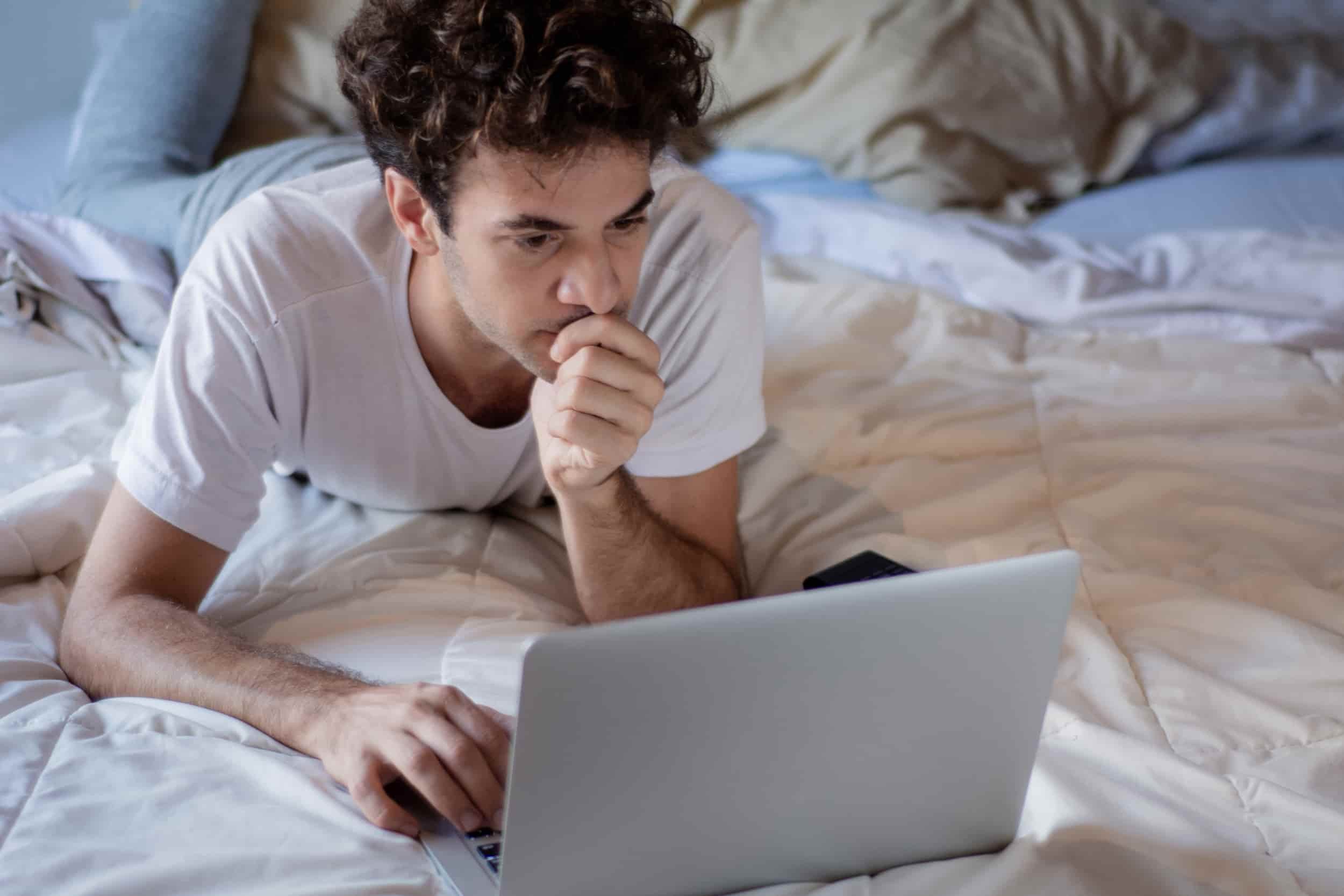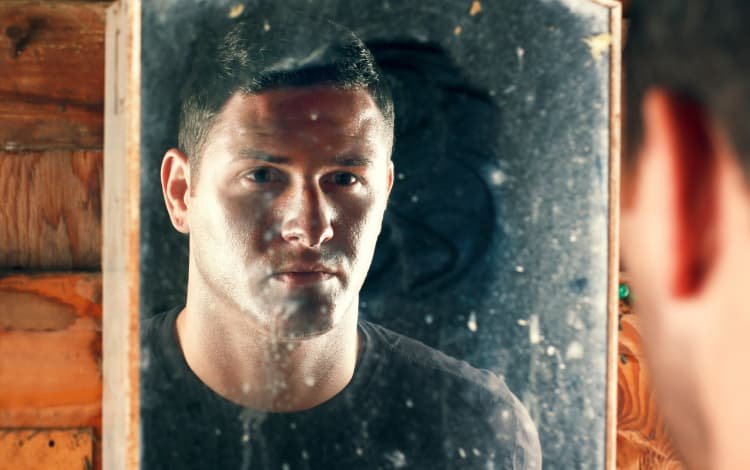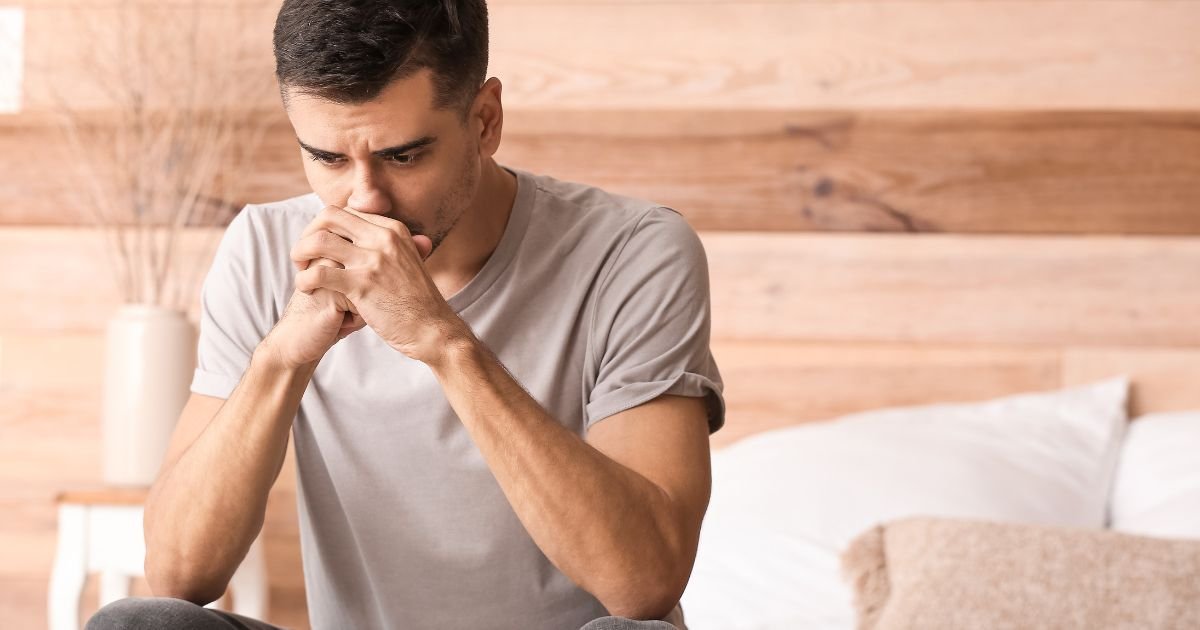Navigating Gay Sex Anxiety: A Therapeutic Guide for Gay Men
This article explores what gay sex anxiety is, its causes and symptoms, and how to overcome it. Written by a specialist gay therapist, it aims to clarify anxiety related to gay sex so you can foster healthier and more fulfilling sexual relationships.
Many gay men find sexual experiences involving the penis pleasurable and emotionally fulfilling.
Many gay men find sexual experiences pleasurable and emotionally fulfilling.
For others, anxiety related to sex can cause discomfort and prevent satisfying sexual lives, impacting personal satisfaction and undermining healthy romantic relationships.
Gay sex anxiety isn't a dysfunction or about "not feeling like it." It's real; it can occur in new or long-standing relationships and affect any gay couple.
Fortunately, identifying and managing gay sex anxiety is possible. Understanding its manifestations can help adoptstrategies to work through it.
As a therapist specializing in issues faced by gay men, this article aims to help you navigate sex concerns and foster healthy sexual relationships.
What are the common misconceptions about gay sex?
Common misconceptions about gay sex and LGBTQ experiences include assumptions that it's solely about physical pleasure, that gay sex is inherently risky, or that all gay men share the same sexual preferences.
Understanding diversity in LGBTQ experiences and focusing on communication and consent are crucial in dispelling these myths.
What causes gay sex anxiety?
Anxiety about gay sex has no universal cause; it's as unique as those experiencing it.
If you’re anxious about sex, here are some common underlying factors I see in my practice.
Relationship issues
Unresolved issues in a current or past romantic or sexual relationship can contribute to anxiety surrounding sexual experiences. Individuals with relationship difficulties often seek individual therapy and, if in a relationship, couples therapy.
Distressing emotions like resentment, guilt, sadness, and anger from relationship challenges can hinder a secure and relaxed environment for sexual intimacy.
Mental health issues
Mental health is linked to sexual well-being. Conditions like generalized anxiety disorder, social anxiety, and depressioncan influence sexual anxiety.
Some pharmaceutical treatments for these conditions cause side effects that impact libido and sexual function, such as erectile dysfunction, difficulty reaching an orgasm, and premature ejaculation.
Mental well-being is multi-faceted and, when linked to sexual anxiety, extends beyond the obvious. It may include notions of self-worth, obsessions with appearance, and sexuality misconceptions influenced by societal, media, or familial attitudes.
Past traumatic experiences
Gay men who have experienced a traumatic event, especially a sexual one, may develop anxiety surrounding sex or sexual situations.
If unresolved past issues could impact your mental, emotional, or sexual well-being, consider speaking with a trained mental health professional.
Sexual performance anxiety
Performance anxiety is common among gay men. It involves being overly self-conscious and preoccupied with performance, which can impede engagement and enjoyment during sexual activity and intimacy.
Many gay men grow up watching pornography. While there’s nothing wrong with watching porn, it may project a false perception of sex and physical appearance. This can lead to unrealistic expectations about sexual relationships and body image.
Another concern among gay men is anal sex. Not all gay men enjoy penetrative sex, both giving and receiving, and some believe they cannot have a healthy sex life or fulfilling relationship without it. This belief is false. Many gay men enjoy a healthy sex life without intercourse.
Sexual dysfunction
Aside from the medication-related sexual problems described above, various forms of sexual dysfunction can cause or exacerbate sexual difficulties and reinforce existing anxiety about sex.
Conditions include premature ejaculation, delayed ejaculation, and erectile dysfunction for men, and arousal difficulties, painful sex, and difficulty reaching an orgasm.
Some challenges may be related to a medical problem, while others may be a psychosomatic symptom of emotional experiences. Increased stress or family problems can decrease libido.
Low self-esteem
Low self-esteem often coincides with sexual anxiety.
Feeling inadequate compared to others, having low self-worth and self-confidence, or having body and weight concerns can affect your ability to meet gay men or enjoy sexual experiences, including experiencing anxiety around sex.
Substance abuse
Substance abuse, including alcohol, can cause and exacerbate sexual anxiety.
Using substances to alleviate anxiety can lead to a vicious cycle, as they can cause or worsen sexual dysfunction, increasing anxiety.
Internalized homophobia
Another common reason for gay sexual anxiety is internalized homonegativity (internalized homophobia). This can cause anxiety about sexual orientation and experiences, such as mutual masturbation, due to negative messages and beliefs about same-sex orientations from society, family, and friends.
Being “in the closet”
Not all gay men are out. If you’re still in the closet, you may feel discomfort with your sexual orientation, including sex.
Gradually accepting your sexuality is possible by addressing issues like trauma, anxiety, social stigma, grooming, and depression.
The intensity, frequency, cause, and consequences of gay sex anxiety are individual and varied.
Like any anxiety case, it must be treated by understanding the root causes, not just focusing on immediate symptom relief.This approach is central to my work with clients.
Body image issues
The media often portrays gay men with certain body types, leading to unrealistic (and unhealthy) appearance standards.Additionally, in some gay communities, there may be a strong emphasis on appearance, causing anxiety if you don’t fit the ideal.
Fear of HIV transmission
The history of HIV and AIDS in the gay community has created fears around infection even with today's prevention methods like condoms and Prep. According to the CDC, misinformation or lack of knowledge about safe sexual practices can lead to exaggerated concerns about STIs.
Overcoming sex anxiety
Overcoming sexual anxiety requires a multi-faceted approach to address the underlying causes and symptoms. Here are some strategies to manage it.
Mindfulness and meditation: Practicing mindfulness can help manage anxiety by focusing on the present.Meditation exercises can calm the mind.
Education: Understanding your body and sexual health can alleviate your fears and anxieties. There are many reliable online sources for the gay community.
Communicate with your partners: Discussing your feelings, expectations, and boundaries with your sexual partners can reduce anxiety and build trust.
Redefine sex: It's more than physical acts; it's about pleasure and connections. It's also a great way to improve intimacy in your romantic relationship.
Build a support system: Connect with your friends or support groups who understand the experience. This support will foster community and reduce feelings of isolation or loneliness.
Avoid alcohol and recreational drugs: While they may temporarily ease anxiety, they can lead to long-term issues and dependence. Alcohol, for example, exacerbates anxiety.
Seek professional help: Recognizing when therapy is needed is crucial to controlling your sexual anxiety. If anxiety significantly impacts your daily life or relationships, find a gay therapist experienced in these issues.Therapy can provide insight into the origins of your concerns and equip you with coping mechanisms.
Have sex in a safe environment: You must feel comfortable with your partner to alleviate anxieties. If you're hooking up (i.e., from Grindr), meet somewhere safe.
Journal: Journaling is an effective therapeutic tool. Writing about your fears, anxieties, and experiences can help you understand and manage your emotions related to sex.
Practice self-care: Engaging in activities that boost your self-esteem and overall well-being can enhance sexual confidence and reduce anxiety.
Set realistic expectations: Nobody's sexual experience is perfect. Attainable expectations can help reduce pressure and anxiety about sex.
My final thoughts on anxiety and sex
The history of HIV and AIDS in the gay community has created fears around infection despite today's prevention methods like condoms. According to the CDC, misinformation or lack of knowledge about safe sexual practices can lead to exaggerated STI concerns.
A compassionate, experienced professional who understands the unique nature of gay sex and same-sex relationships can provide tools to manage and overcome anxiety about sex.
Reaching out is the first step toward change. I'm here to help.
Don't let anxiety about sex define you.
Embark on a path toward a more fulfilling and confident life with the guidance of a specialist who understands the unique experiences of gay men.
Here is how therapy can help:
Understand the cause of your anxiety
Discuss your fears and concerns
Gain insights and techniques
Build self-confidence
Provide support and growth






